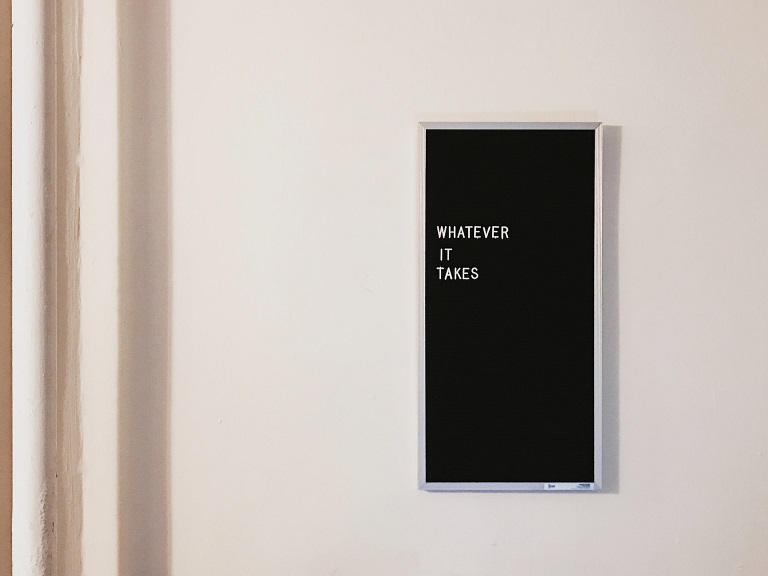What Is Residential Drug Rehab?
Inpatient treatment, likewise described as residential treatment, provides the highest level of rehab services for patients detected with alcohol or other drug addiction. Typically, inpatient drug rehab programs include medical detox and integrated mental health services. With your authorization, rehab personnel may also talk with your relative and consult with specialists you might already be dealing with to resolve your requirements and difficulties. Since addiction is an illness that affects your body, mind and spirit, a multidisciplinary team is combined to supply you with a holistic recovery strategy. Your certified team members for residential treatment might consist of:
- Physicians
- Nurses
- Psychiatrists
- Psychologists
- Licensed marriage and family therapists
- Certified addiction counselors
- Nutritional experts
- Wellness and physical fitness specialists
- Continuing care coordinators
- Monetary supporters
- Medical case managers
Prepared to take the next step?
Call (866) 503-4950 today and our group of recovery specialists will figure out the most effective substance abuse treatment programs and services to help you recover your life from addiction.

The Benefits of Residential Drug Rehab
Residential rehab, and lots of kinds of inpatient rehab, use specific benefits that other kinds of treatments might not constantly offer. A few of these benefits consist of:
- The capability to detox in a safe and secure environment offering 24/7 care and assistance.
- The capability to resolve drug abuse issues, codependency, co-occurring disorders, and injury in a safe and safe environment.
- Different therapies.
- A tight-knit neighborhood with whom to process all stages of substance abuse recovery.
In spite of the large quantity of benefits that residential rehab offers, all kinds of substance abuse treatment show helpful for those wanting to recuperate from drug abuse issues. To get more information about different inpatient and residential treatment programs near you in Williamstown, New Jersey, call: (866) 503-4950
Inpatient Vs. Outpatient Rehab in Williamstown New Jersey
Inpatient And Outpatient Addiction Treatment
Drug and alcohol treatment programs usually fall into 1 of 2 classifications– inpatient or outpatient rehab. While equally concentrated on rehab, each type has special qualities and benefits to use. Inpatient rehabs are intensive, residential treatment programs designed to treat severe dependencies. Outpatient rehabs are part-time programs, enabling the recuperating user to keep going to work or school throughout the day. It is necessary that both the individual with a substance use disorder (SUD) and their loved ones understand the differences prior to choosing an inpatient or outpatient treatment program. Checking out all alternatives prior to deciding can put you or a loved one on the road to recovery long-lasting sobriety.Inpatient Rehab And Treatment
Inpatient recovery programs, also referred to as residential treatment, require patients to inspect themselves into a controlled environment to overcome their dependencies. Clients stay at a clinic with 24-hour medical and emotional support.Preparing For Inpatient Rehab in Williamstown
It’s important to correctly prepare for rehab. There’s no set amount of time required to get ready for treatment. It is important to set an entry date for rehab and to have affairs settled before that date. Some of the things to look after before going into rehab include:- Talking with your company
- Finding living arrangements for children or other family members
- Preparation how to get to and from the recovery center
- Discovering what personal items are permitted
Family Support And Contact In Inpatient Rehab
Effective inpatient centers understand family involvement is crucial to recovery. Relative can get in touch with loved ones in residential treatment to provide emotional support and encouragement. When it comes to how and how frequently citizens can interact with their loved ones, each inpatient center’s policy is various. Some rehab centers also offer counseling for the family of the person in treatment.Daily Life During Inpatient Rehab in Williamstown, NJ
During inpatient treatment, citizens are able to completely focus on recovering and sober without the interruptions of everyday life. A typical day in residential treatment is thoroughly scheduled and represented. Psychologists, counselors, and psychiatrists consult with clients separately and in group settings to guide inpatient recovery. A typical residential program runs anywhere from 28 days to 6 months. The primary step in inpatient treatment is medically assisted detox. Physicians and addiction specialists keep track of patients’ vital signs while the drugs leave the system. Drug yearnings prevail during detox and can be difficult to conquer, often resulting in regression. Consistent treatment provided throughout inpatient treatment helps guard against relapse. Clinicians can supply needed medication and medical expertise to minimize yearnings and withdrawals. The brain responds differently to different addictive substances gradually and a course of regular use. Withdrawal signs aren’t pleasant for any drug, but some drugs must never ever be stopped without medical supervision. Some withdrawals can be fatal. Lethal withdrawals are linked to drugs like artificial Opiates, Benzodiazepines, alcohol, and Heroin. During inpatient rehab, patients have access to 24-hour medical attention. This attention can indicate the distinction between relapse and recovery.Outpatient Rehab And Substance Abuse Treatment
Outpatient drug rehab is less limiting than inpatient programs. Outpatient recovery programs generally need 10 to 12 hours a week invested visiting a local treatment center. These sessions concentrate on drug abuse education, individual and group therapy, and teaching addicted people how to cope without their drug. Outpatient drug rehab can be a great standalone alternative for someone with a mild addiction, or it can be part of a long-lasting treatment program. Outpatient drug rehab can last 3 to 6 months– something comparable to inpatient treatment– or over a year.Outpatient Detox Programs in Williamstown
Patients with mild-to-moderate drug withdrawal symptoms may discover outpatient detoxification a fitting option to residential detox. Outpatient detox is safe, effective, and takes less time to complete than inpatient detox; the average outpatient detox is 6.5 days. Patients need to go to a healthcare facility or other treatment facility for physical and mental check-ups during outpatient detox. Clinicians or physicians might administer medications on-site to soothe withdrawal signs like stress and anxiety, anxiety, and increased heart rate.How Does Detox Work?
Detox is the initial step in helping your brain and body recover from drug abuse. The detox process begins with assessments by medical physicians and nurses to figure out which, if any, medical interventions are required. Detox is primarily a time to flush the chemicals from your body, which can be an uneasy experience without the right treatment to help ease pain and/or drug cravings. Medical personnel will work with you to evaluate your level of discomfort and provide you with medications, if needed, to resolve any pain or cravings. During the detox process, you will be medically kept an eye on 24/7 till medical personnel identify you are steady enough to take part in rehab programming and activities.Social Support in Williamstown Throughout Outpatient Rehab
Outpatient drug rehab permits those in recovery to stay in the house throughout treatment. Those going through outpatient drug rehab can continue working and stay near friends and family. Outpatient treatment centers usually perform meetings at night or in the early morning, helping those in the program preserve their regular schedules. Twelve-step groups like Alcoholics Anonymous (AA) and Narcotics Anonymous (NA) might be utilized as part of outpatient treatment. Research studies show that taking part in recovery groups like AA and NA assists recovering addicts remain sober. Numerous individuals with a substance use disorder (SUD) also rely on outpatient treatment after completing an inpatient program as part of their continued recovery.Inpatient treatment programs generally cost more than outpatient drug rehab. The on-hand treatment and psychotherapy available to residential rehab clients increases treatment costs. The rate distinction should not encourage or prevent someone from picking the very best treatment path for them.
How Much Does Residential Drug Rehab in Williamstown Cost?
The cost of inpatient rehab programs depends on the treatment center selected, the level of medical care recommended, and the length of time in treatment. The amount you pay will also depend upon whether you have the ability to access insurance benefits to assist cover the cost or you’re paying out-of-pocket. The majority of treatment centers are in-network with the majority of insurance providers, and a lot of patients use their health insurance benefits to assist cover treatment expenses. Insurance plan and benefits vary greatly, so it is very important to consult your service provider about coverage specifics in your case. Some clinics use client monetary help funds, on a minimal basis, to assist offset the cost of addiction treatment for certifying patients – please call (866) 503-4950 today to make sure you qualify.Residential Drug Rehab Williamstown New Jersey?
Your first step is to call our friendly assistance team on (866) 503-4950 for a private phone evaluation. You will talk with a recovery professional who will figure out whether drug or alcohol treatment is required and, if it is, will suggest the appropriate level of care and work with you to collaborate insurance advantages. If alcohol or drug addiction is not clearly indicated or if you’re not all set to commit to an inpatient stay, you can make the most of other services such as mental health sessions, training, enjoy a webinar, or listen to a podcast to get more info or to get inspiration.Whatever The Choice, Recovery Is Around The Corner
No matter which treatment option in Williamstown you select for you or a loved one, rehab can alter your life. Addiction is a chronic disease, and recovery is a lifelong process. Physician, mental health counselors, and neighborhood groups like AA can teach the required skills to avoid relapse. Take the primary step toward recovery and get in touch with a treatment provider today.Ready to take the next step?
Call (866) 503-4950 today and our team of recovery experts will determine the most effective drug abuse treatment programs and services to assist you reclaim your life from addiction.

